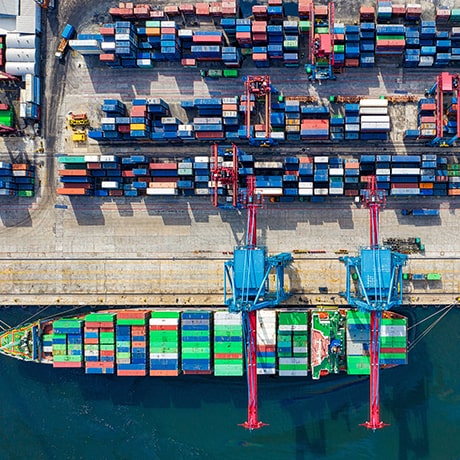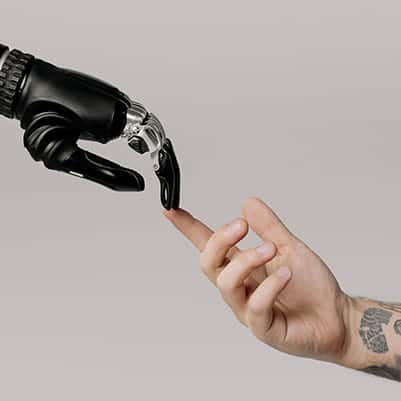Since the rolling of vaccines for COVID-19, everyone has discovered that a good Supply Chain Management (SCM) marks the difference between failing or succeeding in a globalized world. In the last months, even people who are not into logistics have heard multiple times about the importance of supply chain. Despite this, not many people have clear in their minds what supply chain managers do. For this, we have created a guide to help you and maybe you will discover a possible career to pursue.
But first, let’s dig in some data. COVID-19 has created enormous problems for different industries that are now struggling to recover. Well, this does not apply to the supply chain industry. Data says that, regardless of the pandemic, the global SCM market is set to grow by 11.2% from 2020 to 2027.
What do supply chain managers do? How much do they earn?
As described in TalentLyft “Supply Chain Managers are responsible for overseeing and managing company’s overall supply chain and logistics strategy and operations in order to maximize the process efficiency and productivity. Additionally, they play a crucial role in developing and maintaining good relationships with vendors and distributors.”
In other words, as a supply chain manager, you will have the opportunity to travel and make meaningful connections that could benefit the company. You will be based in an office for the major part of the time. However, from time to time, you will be required to visit warehouses, suppliers and customers, with some of them located in a different city or country. Sounds exciting, right?
Apart from the technical skills, you will have to develop different soft skills to excel at this job. Communication, organizational and diplomacy skills are without any shade of doubt the most important qualities you should have. For example, communication and diplomacy will help you creating and fostering positive connections with vendors and distributors. If you think you do not have those skills, don’t worry, you are still in time to work on them.
The hard work you will put into developing the hard and soft skills necessary to thrive in this career will be paid back. A Supply Chain Manager in Spain usually earns a higher-than-average salary of €47,053 per year. Of course, the salary will depend on your experience. Nevertheless, even early career Supply Chain Managers can not complain at all, as they usually earn €34,412 per year. Once they have around 5-9 years of experience, the pay rise to an average of €43,718 . Finally, an experienced Supply Chain Manager with 10-19 years of experience earns an average of €57,288.
2 Tips to start your career in Supply Chain Management (SCM)
It is often difficult to understand the best ways to start a career in the supply chain industry. In our professional opinion, you should focus on two main things.
Education
First of all, make sure you receive a proper education to train you on a theoretical and practical level. Our MBA in International e-Supply Chain Management does precisely this. As you will discover later on in this article, we know that technology plays a crucial role in this field. We will give you the right tools to use and apply technology consciously in your professional life. Moreover, you will have the opportunity to pursue a double accredited MBA that will increase your chances to be hired.
Trends
The second thing you should always have in mind, learning never ends. Even when you will finish your higher education, you should look at recent trends in SCM to keep yourself informed. This is because the supply chain industry, like many others, is in constant evolution. Therefore, professionals should actively look forward to new ways to create added value to the company they are working for, introducing the necessary elements to keep organizations modern. In the next chapter, we have analyzed for you the three main trends that will help you kick-start your career.
3 Trends of Supply Chain
-Green Supply Chain
We live in the era of ethical consumers: individuals want to purchase products without harming the planet. Consider that 60% of consumers don’t mind paying a premium for sustainable products.
The term “green supply chain” is defined as “the concept of integrating sustainable environmental processes into the traditional supply chain. This can include processes such as product design, material sourcing and selection, manufacturing and production, operation and end-of-life management.”
Every company should seriously consider becoming more sustainable in its supply chain management, as it has numerous benefits. It has a clear positive impact on how an organization is perceived by consumers. This, in turn, will increase sales, as people are more likely to support and purchase from a green company. Moreover, a sustainable approach to the supply chain means a reduction in costs, as it will lead to lower waste-disposal and training costs.
– Data Analysis
Data Analysis has permeated every industry, including the supply chain. Just imagine that 41% of supply chain managers reported having data analysis as a priority. It is understandable, as supply chains generate a massive amount of data that can be properly understood and categorized only with data analysis.
Analytics will help companies make better decisions based on trusted data. This will help organizations achieve their goals as they will be able to better understand risks, prepare for the future, better understand the clients’ needs.
Moreover, as pointed out by IBM, the worldwide famous multinational technology company: “A recent Gartner survey revealed that 29% of surveyed organizations said they have achieved high levels of ROI by using analytics, compared with only 4% that achieved no ROI.”
-5g And IoT
As with data analysis, technology can be our best ally if we only learn how to use it.
When it comes to supply chain management, the right implementation of technology can play a fundamental role in making the process easier and more precise.
According to Johan Jemdahl “The full potential of IoT (Internet of Things) to track inventory will finally be unleashed under 5G. Cargo can be fitted with inexpensive sensors that use very little power, and track goods from the factory floor, through the shipping process, to the warehouse, all the way to store shelves, creating a trusted record of an item’s journey. One of the most disruptive uses for 5G networks is driverless transportation. 5G is likely to make this possibility a reality, which will have a huge impact on the logistics industry.”
Kick-start your Career
As you have seen in What do supply chain managers do? How much do they earn?, the SCM industry is full of rewarding opportunities. You will have the chance to travel to manage and supervise the different steps of supply chain management. Moreover, you will earn a higher-than-average salary and you will have no problems finding a job.
To start a career in one of the most demanded professions of the future, you will need to be open to invest in your education and never stop learning. Remember, for a successful career in SCM, you will need to keep yourself updated with the latest trends in the field.
We have provided you with the basics to kick-start your career. Now it is your turn to act. At BEBS, you will be able to choose to pursue your MBA online or on campus. Stop making excuses and get in touch with us at [email protected].
We are waiting for you!




